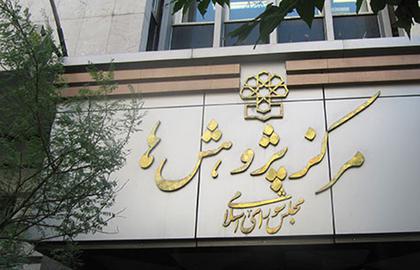Israeli Prime Minister Benjamin Netanyahu’s recent announcement that Iranian officials lied about the country’s nuclear program — and his claims that Israel had that evidence to prove it — hit the headlines around the globe. But were Iranian officials shocked by these accusations?
Netanyahu made his claims during a speech on April 30, saying that Israel had obtained tens of thousands of Iranian documents to prove Iran lied. But it could be that the Revolutionary Guards and other officials were expecting this all along.
This is certainly the view of Hossein Bastani, an analyst of current Iranian affairs. On Wednesday, May 2, he published an article on the Peyk-e Iran website [Persian link], pointing to an important column that appeared in the newspaper Javan, which is associated with the Revolutionary Guards. The column was published on March 12, 49 days before Netanyahu’s pronouncements.
In the Javan column, the author predicted that, as part of this “new round” of pressures on the Islamic Republic, “the past record of Iran arming its ballistic missiles with nuclear warheads will be used as evidence.”
To explain this record, the Javan column referred to the military aspects of Iran’s nuclear program — known as PMD or Possible Military Dimensions — and to the secret Project AMAD, which focused on building a nuclear weapon. These references strongly resemble claims made by Netanyahu. The fact that the warning from the Revolutionary Guards’ newspaper is so similar to later claims by the Israeli prime minister is strange, Bastani says.
In his speech, Netanyahu said that Israeli intelligence agents obtained 55,000 pages and 183 CDs of secret Iranian documents about its nuclear program. He did not reveal exactly when the intelligence operation took place, saying only that it was “a few weeks ago.” So were Revolutionary Guards officials aware of this heist and decided to prepare the public for it?
A key part of the Javan column was in its conclusion, in which it gave Iran’s foreign ministry some advice: “As a response to the western pressure...prepare incontrovertible evidence to reject such documents.” The column’s author said it was “undeniably necessary” for the ministry to be prepared, “considering the current situation and the American resolution to focus on this question.” By using the phrase “undeniably necessary,” and by recommending the ministry make preparations to reject documentary evidence about possible military plans or capabilities, it would appear the Javan article was not about contingencies, but was instead a warning about an event the author knew was going to happen — Netanyahu’s speech.
Javan has not published any specific responses to the Israeli prime minister’s revelations, but another Revolutionary Guards’ media outlet, the website Mashregh News, referred to the speech as a failed performance and a failed attempt at psychological warfare. To help prove its assessment was correct, Mashregh News quoted western commentators and experts. In one example, an article entitled “Details of Netanyahu’s Psychological War against Iran” even quoted an Israeli expert to prove its point: “Alon Ben-David, a military analyst for the Zionist regime’s Channel 10 TV, pointed out that Netanyahu’s recent speech failed to prove that Iran continued the military aspects of its nuclear program after signing the JCPOA,” the article read.
Fars News Agency, another entity associated with the Revolutionary Guards, published several reports about Netanyahu’s speech, and tried to discredit the Israeli prime minister by quoting western experts too. Tasnim News Agency, also associated with the Guards, ridiculed Netanyahu, pointing out errors in one of the slides he presented —it said the slide depicting a missile was labeled with the incorrect name for it, and that the slide also provided incorrect details on the range of the Shabab Missile.” Tasnim referred to this as “Netanyahu’s missile gaffe” and characterized these errors as “extremely gross.”
But while the Guards-affiliated media has been vocal on the revelations, the Revolutionary Guards Corps has so far remained silent. Its official response to the Israeli prime minister is yet to come.
visit the accountability section
In this section of Iran Wire, you can contact the officials and launch your campaign for various problems

























comments